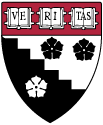Computer Science Education Week
The NSF put out a press release about Scratch, as a part of Computer Science Education Week (December 6-12):
When most of us think about computer programming, we think of typing in lines and lines of code with semicolons and complex syntax. This common perception about computer programming helps keep people from getting excited about computer programming, yet many professions need the complex problem solving and analytical skills that programming can build. Changing this perception could help get people, especially young people, interested in computer science.
(Read the rest of the article...)
Scratch was also recently featured on the NSF Facebook page in honor of Computer Science Education Week:
Think you can code better than an eight-year old? Want to create your own animations and games? In honor of Computer Science Education Week, NSF invites its Facebook fans to try to learn computer science from Scratch.
If you've never heard of it, Scratch is an NSF-supported created by Mitchel Resnick and his colleagues at the MIT Media Lab. Check it out and download it at http://scratch.mit.edu/.
The core audience of Scratch is children ages eight to 16, but it has something for everyone. In Scratch, coding is done with graphical blocks, not with syntax and those semicolons. A student writes code by snapping together blocks, much like LEGO bricks or pieces of a puzzle. Additionally, the blocks are designed to fit only in ways that make syntactic sense. This eliminates the dreaded syntax errors that often frustrate and discourage young computer programmers. To create a program, students drag-and-drop the blocks to create procedures. For example, a student can code a procedure that would make a figure dance. Scratch is easy for people to get started, but still provides the complex environment that allows people to design more complicated projects.
Whether you're already a Scratch pro or a newbie, we'd love to see what Scratch projects you can create. Post the URLs to your creations on this discussion boards, and we'll put the most interesting and entertaining on the main NSF Facebook page.
And be sure to check out http://www.csedweek.org/ for more info on Computer Science Education Week, why it matters, and what you can do to jump start this critical piece of 21st learning in your community.

